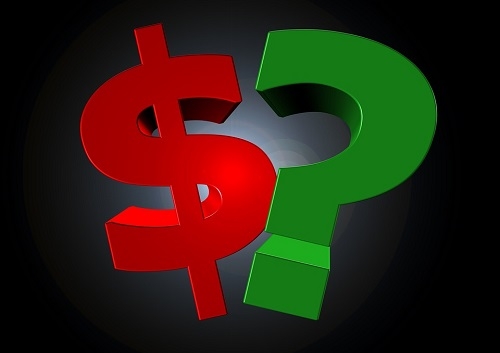
By Roger J Kerr

Back in the May, June July period this column repeatedly warned of two particular risks that would send the NZ dollar lower on its own accord if certain events occurred. These forces being over and above the normal influences on the NZD/USD exchange rate direction and value; i.e. the USD, the AUD, whole milk powder prices and global investor “risk-on/risk-off” sentiment.
- New Zealand political risk if the opinion polls were to close up with Labour gaining on National. “Jacindamania” (which captured the media mostly) certainly achieved that and the Kiwi dollar went down ahead of the general election.
- The prospect of US import tariffs on NZ agricultural exports if President Trump pushed through new border taxes. Never happened and the three month investigation report has never seen the light of day. Borders taxes were not even mentioned in the latest Trump tax reform proposal.
The depreciation of the Kiwi dollar from above 0.7400 in early August to below 0.7200 due to the political uncertainties occurred over a period when the Australian dollar made strong gains against a weaker USD on the back of higher hard commodity prices. Net result was a plummeting NZD/AUD cross-rate from 0.9500 to briefly below 0.9000.
In the very short-term until 7 October at least, whilst we have a political impasse/vacuum in New Zealand the Kiwi dollar should remain stable. Once it becomes clear with whom New Zealand First leader, Winston Peters decides to negotiate with first and the outcomes from the policy horse-trading that goes with such post MMP election shenanigans, the Kiwi dollar could go either way depending on what type of government we end up with.
Likely alternative political scenarios over coming weeks, estimates of their probability of occurrence and resultant Kiwi dollar movement responses are as follows:-
- Minority National government, supported by a “supply” agreement with Winston (50%): The reality is that Winston has been a Cabinet Minister on three previous occasions, so “been there/done that” and at 72 years of age does he want the daily work pressures of the responsibilities of a Minister of the Crown in a formal coalition government with National? He will get more apparent power and attention if he sits on the cross-benches and pushes through his desired immigration changes with Labour and the Greens. Kiwi dollar response? – One to two cents higher.
- Winston forms a coalition government with Labour and the Greens (40%): Increases uncertainty for the economy with potentially higher taxes, fiscal deficits, higher Government debt, political interference with the independent central bank and reduced business confidence. GDP growth would falter as local businesses cannot expand as they cannot get skilled workers from offshore or locally. Winston has always held a view that the Kiwi dollar should be artificially lowered to help exporters and growth, ignoring the flipside that the higher inflation that would result erodes the spending power of the savings of the older age groups who have been his voting support over the years! A recipe for foreign portfolio investors to lose confidence and reduce New Zealand asset allocations/FX positions. Kiwi dollar response? – Two to four cents lower.
- National/Greens coalition or supply agreement (5%): If the Green Party did not have such socialist economic policies this scenario would have legs. Surely their leader James Shaw has observed the collapse of socialist/communist economies in Russia, Cuba, North Korea and Venezuela as evidence that the policies do not work in a modern world economy? Kiwi dollar response? - One to two cent higher.
- National/Winston coalition (5%): Unlikely for the reasons cited above. Kiwi dollar response? - One to two cent higher.
At the end of the day, once the uncertainty is over and we have a new Government the FX markets will return their focus back on the economic fundamentals and normal drivers of the currency.
The economy is currently expanding at a growth rate above most others due to high export commodity prices that has propelled the Terms of Trade Index (export prices over import prices) back to record 40 year highs. Hardly a situation that suggests medium term currency depreciation.
The NZD/USD exchange rate is only likely to trade sustainably below 0.7000 if the US dollar returns to significant strengthening against the Euro, Pound and Yen. Outside that, the general stability between 0.6800 and 0.7500 that we have witnessed over the last 18 months looks set to continue.
Email:
Daily exchange rates
Select chart tabs
Roger J Kerr contracts to PwC in the treasury advisory area. He specialises in fixed interest securities and is a commentator on economics and markets. More commentary and useful information on fixed interest investing can be found at rogeradvice.com
4 Comments
I pick that not much will change , we run a budget surplus ( or at least a balanced budget) , we export food and everyone on the planet has to eat.
We have a stable banking system , a free floating currency giving a positive yield after inflation , a stable well run democracy , a robust legal system and a growing economy .
Expect the Kiwi$ to remain strong
NZD set to push substantially higher in coming 6 months.
I agree with you Boatman, it won't make any difference to which party is in Power
Many state that immigration has peaked and will now reduce, the economy is slowing, housing market may move downwards. Global political uncertainty can also see traders fleeing to safe haven currency away from NZD. There are also headwinds facing our main trading partners. There are plenty of potential triggers for a lower NZD. Too many clouds on the horizon to feel so confident about the Kiwi IMO.

We welcome your comments below. If you are not already registered, please register to comment
Remember we welcome robust, respectful and insightful debate. We don't welcome abusive or defamatory comments and will de-register those repeatedly making such comments. Our current comment policy is here.